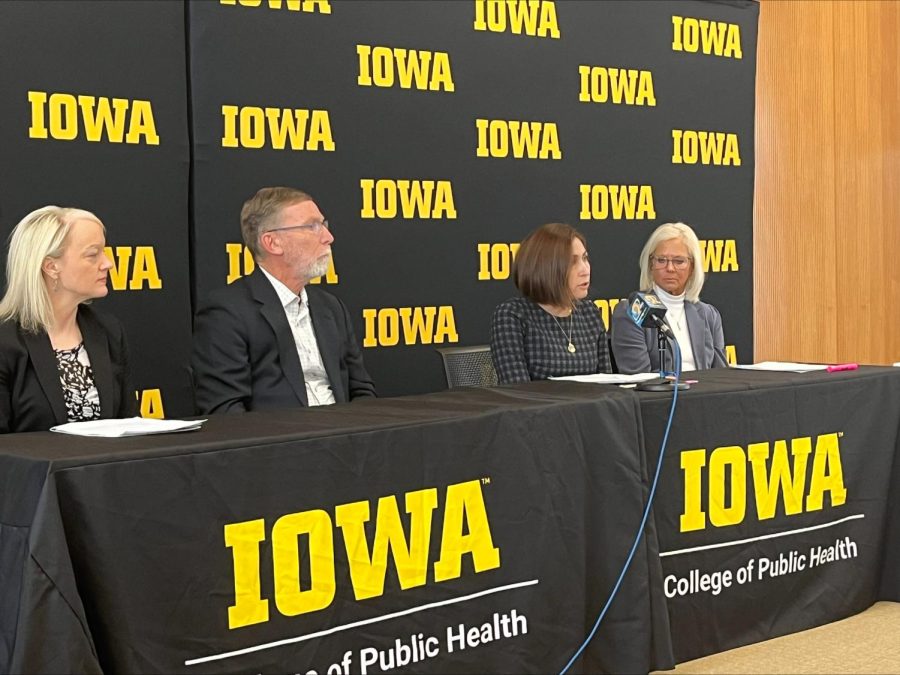The practice of binge drinking in college is all too common, and even celebrated at times.
Despite its social acceptance, the health consequences of excessive alcohol consumption must not be overlooked.
The Iowa Cancer Registry released its latest Cancer in Iowa report on Feb. 20. According to the report, Iowa ranks second for the fastest and highest-growing number of cancer cases in the U.S.
There are various causes of cancers, such as UV radiations, which lead to skin cancers; smoking, which causes lung cancer; and viruses like Hepatitis B, which causes liver cancer. The report found that alcohol is a contributing risk factor for cancer among Iowa residents.
Iowa has the fourth-highest incidence rate of alcohol-related cancers in the U.S. and in the Midwest.
The report highlights an estimated 21,000 new cancer cases in Iowa residents, with 14 percent being breast cancers, 13.6 percent being prostate cancers, and 12.9 percent being lung cancers.
Iowa ranked fourth in the nation for “binge drinking” in 2022, according to the report.
The National Institute on Alcohol Abuse and Alcoholism defines binge drinking as the consumption of four or more drinks by a woman and five or more drinks by a man in a period of two hours.
According to the National Cancer Institute, or NCI, moderate to heavy alcohol consumption is linked to certain head and neck cancers, with heavy drinking causing a fivefold increase in pharyngeal cancers.
The NCI also links alcohol to an increased risk of a type of esophageal cancer called squamous cell carcinoma that develops on the epidermis and may spread to other parts of the body if left untreated. Moderate to heavy drinking has also been associated with an increased risk of colorectal cancer.
One of the obstacles in the formation of alcohol-related policies is the normalization of binge and heavy drinking, especially among underage individuals. As per the Cancer in Iowa report, 23 percent of Iowa residents reported having at least one alcoholic drink from the ages of 12-20 years, and 15 percent reported binge drinking in 2019-20.
The Iowa Department of Public Health, or IDPH, suggests an increase in excise tax or a minimum unit price to discourage consumers from buying excess alcohol and reduce binge drinking.
According to the Centers for Disease Control and Prevention, minimum unit pricing policies promote “an increase in the price of the cheapest alcohol” to further prevent related illnesses. As per the World Health Organization’s pricing model in Scotland, alcohol-related deaths and hospitalizations were reduced by 13.4 percent and 4.1 percent respectively.
The IDPH also recommends the collection of data related to the number of licensed alcohol consumers and the correlation of alcohol abuse to public health. If implemented, it could help track the rate of alcohol consumption, its demand and effects on the number of cancer cases, and the development of strategies to generate public awareness.
Therefore, the first step to reducing alcohol-related cancers is to eliminate the misconception of binge drinking as a social norm, and understand the risks that accompany alcohol intake and its effects in later stages of life.
Columns reflect the opinions of the authors and are not necessarily those of the Editorial Board, The Daily Iowan, or other organizations in which the author may be involved.













